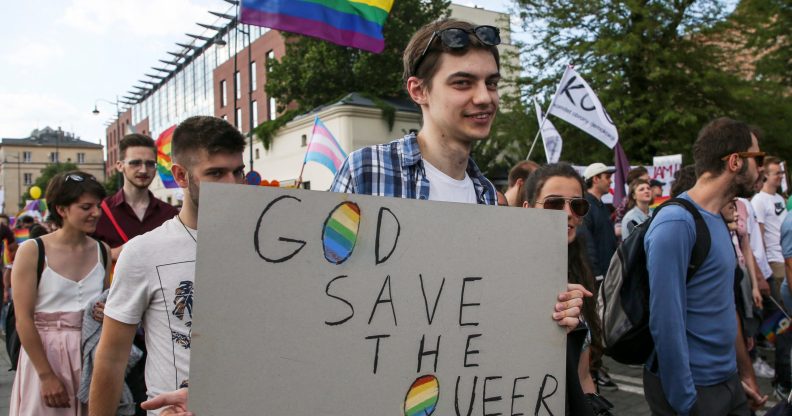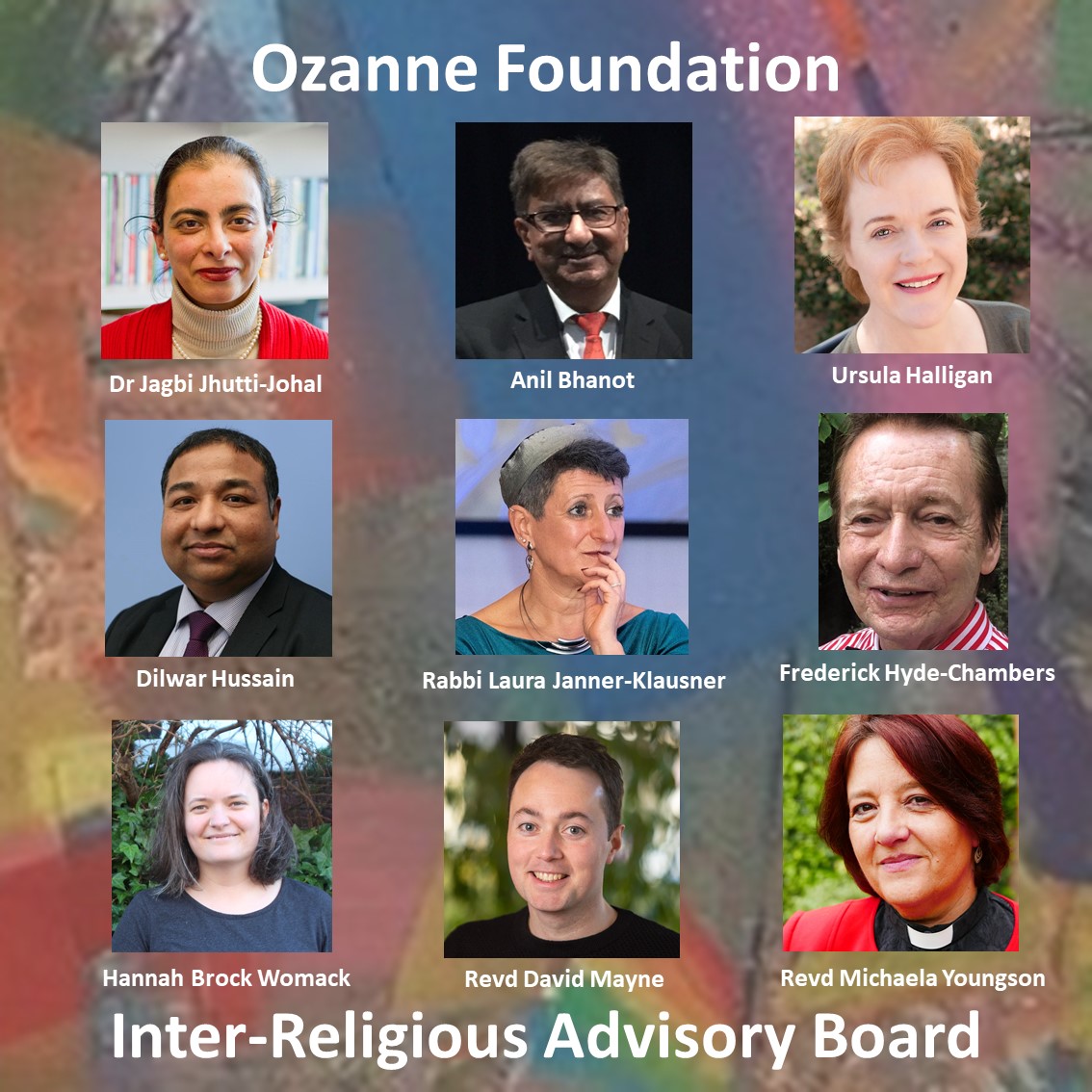Leaders from every major religion join forces to fight homophobia, end conversion therapy and protect trans people

The board’s members represent the main UK religions – Judaism, Islam, Sikhism, Hinduism, Buddhism and Christianity. (Beata Zawrzel/NurPhoto via Getty)
Leaders, religious figures and academics from across every major religion and Christian denominations in the UK and Ireland have joined forces to fight anti-LGBT+ discrimination.
The Ozanne Foundation, which works with religious organisations around the world to support LGBT+ people, has marked the end of Pride Month by launching the UK’s first inter-religious advisory board focused on fighting discrimination.
The panel’s nine members span across the main UK and Irish religions – Judaism, Islam, Sikhism, Hinduism, Buddhism and Christianity – as well as representing the Christian denominations of Catholics, Quakers, Baptists and Methodists.
The board will learn from the experiences of religious groups that affirm same-sex couples like the Quakers, represented by Hannah Brock Womack who was blocked last year from becoming president of Churches Together in England (CTE) because she is in a same-sex marriage, and develop strategies to promote inclusion within their own religious communities.
Bishop Paul Bayes, chair of the Ozanne Foundation and bishop of Liverpool, said: “We are thrilled that such a distinguished group of leaders has accepted our invitation to work together, advising us on the best way to tackle prejudice and discrimination in religious organisations on the grounds of sexuality or gender.
“We have so much that we can learn from each other, and I am hugely grateful for the commitment each member has shown in starting to change the dialogue around faith, sexuality and gender identity.”

(Ozanne Foundation)
Of immediate concern to the advisory board is promoting a ban on conversion therapy in the UK, and supporting the trans community across religions in the UK and Ireland.
Board member and senior rabbi to Reform Judaism Laura Janner-Klausner said: “There is so much I believe that we can achieve together, however of immediate concern is to ensure that the UK government bring forward legislation to end the horrific practise of conversion therapy, which we know is perpetrated by many religious leaders.
“I am also deeply concerned about the nature of the dialogue around single-sex spaces, and hope that we can find a more empathetic tone when discussing proposals that directly affect the everyday lives of trans people.”
Dilwar Hussain, advisory board member and chair of New Horizons in British Islam, a charity that works on Muslim identity, integration and reform, told PinkNews that LGBT+ inclusion within religious groups is, for him, an issue of “moral consistency”.
“I think the irony is that at the core of all religious teachings, they are about how we can be better human beings,” he said.
“And yet, unfortunately, the trajectory that many religions have taken over the centuries is that somehow they’ve arrived to the place that has been terribly cruel and harmful to people [who are LGBT+].
“If I want to be a religious person and advocate a position for saying that the world should be a better place, I don’t think I have much moral authority to do that if I’m being discriminatory and prejudicial towards other people, to my neighbours and fellow human beings.”
Hussain said Muslim communities in the UK have some “catching up to do”, even compared to other religious groups, but that encouraging them to be more open to inclusion “is about putting ourselves in the shoes of other people” and “being able to see the pain of other people”.
On the launch of the inter-religious advisory board, he said: “This is quite a groundbreaking initiative, it’s the first forum of this kind where such a breadth of religious people have come together to try and prevent discrimination against LGBT+ people.
“I think I think it’s a really important step and I’m very hopeful, very optimistic, for what we can do… I think we need to develop the confidence to be able to talk about these issues confidently, and to openly challenge prejudice within our own backyard, wherever we see that and find that.
“That will be the most difficult thing. It’s nice for us to sit together and agree with each other, it’s when we go back to our own communities, and have to challenge them on why they need to change, why we all need to collectively move in this direction.
“And that’s where the real challenging part of this. But I think this is a challenge that all of us who have joined this board are up for. And that’s precisely why we’re here.”

